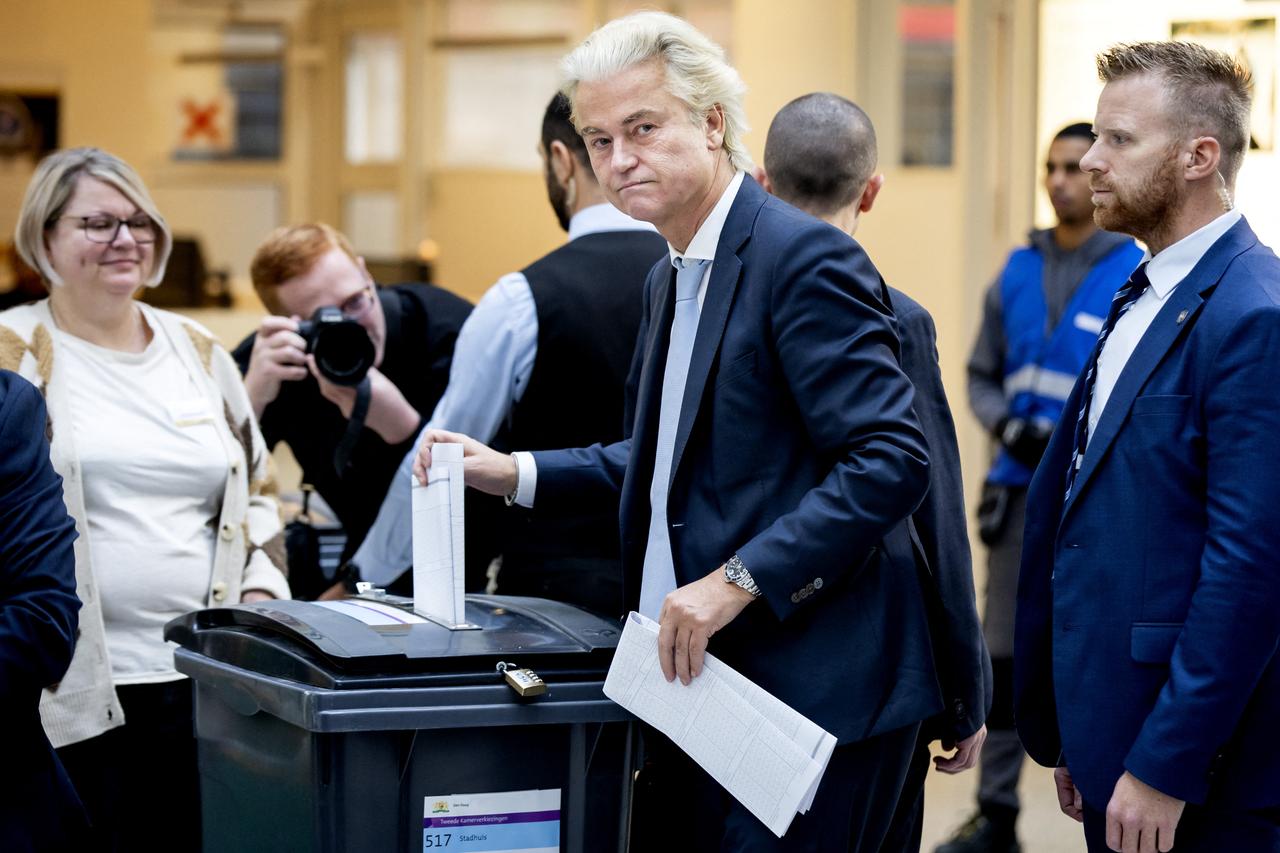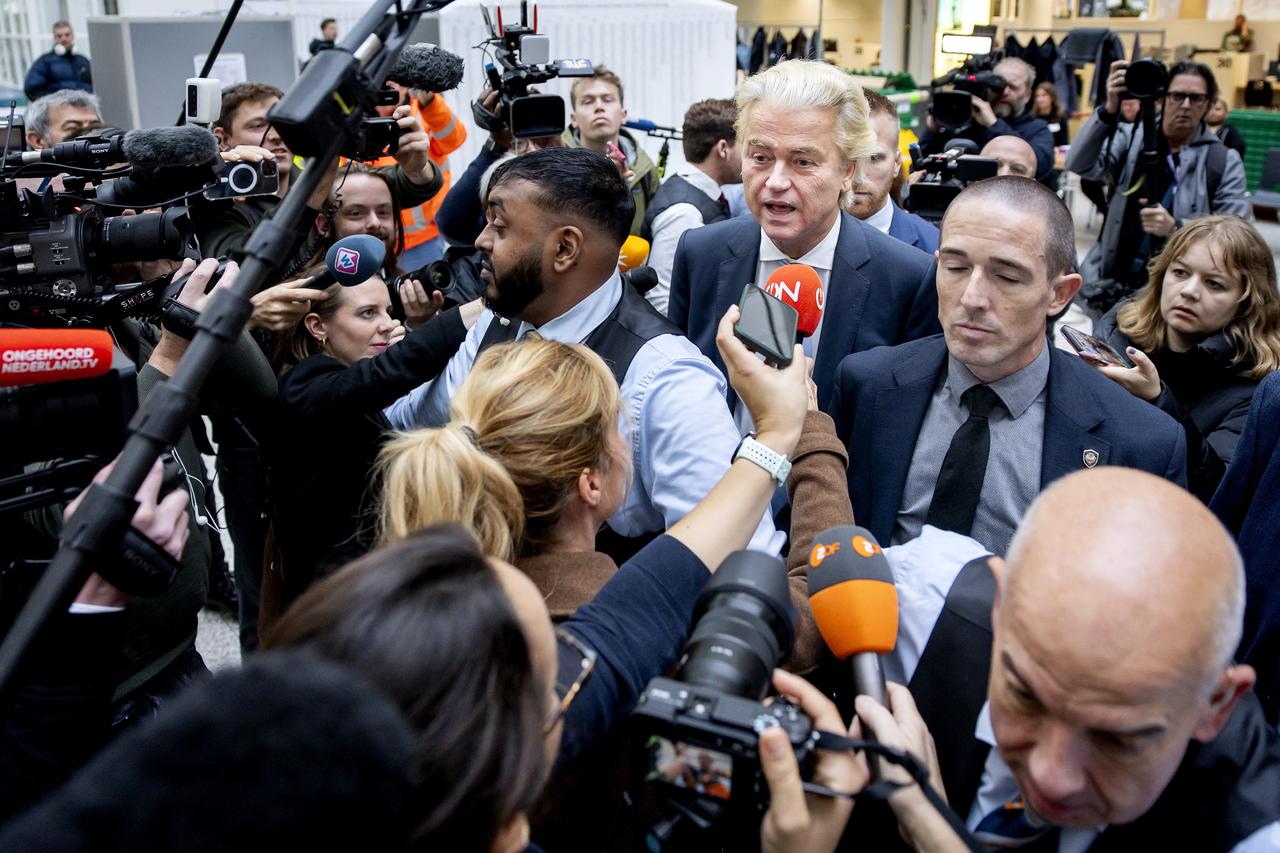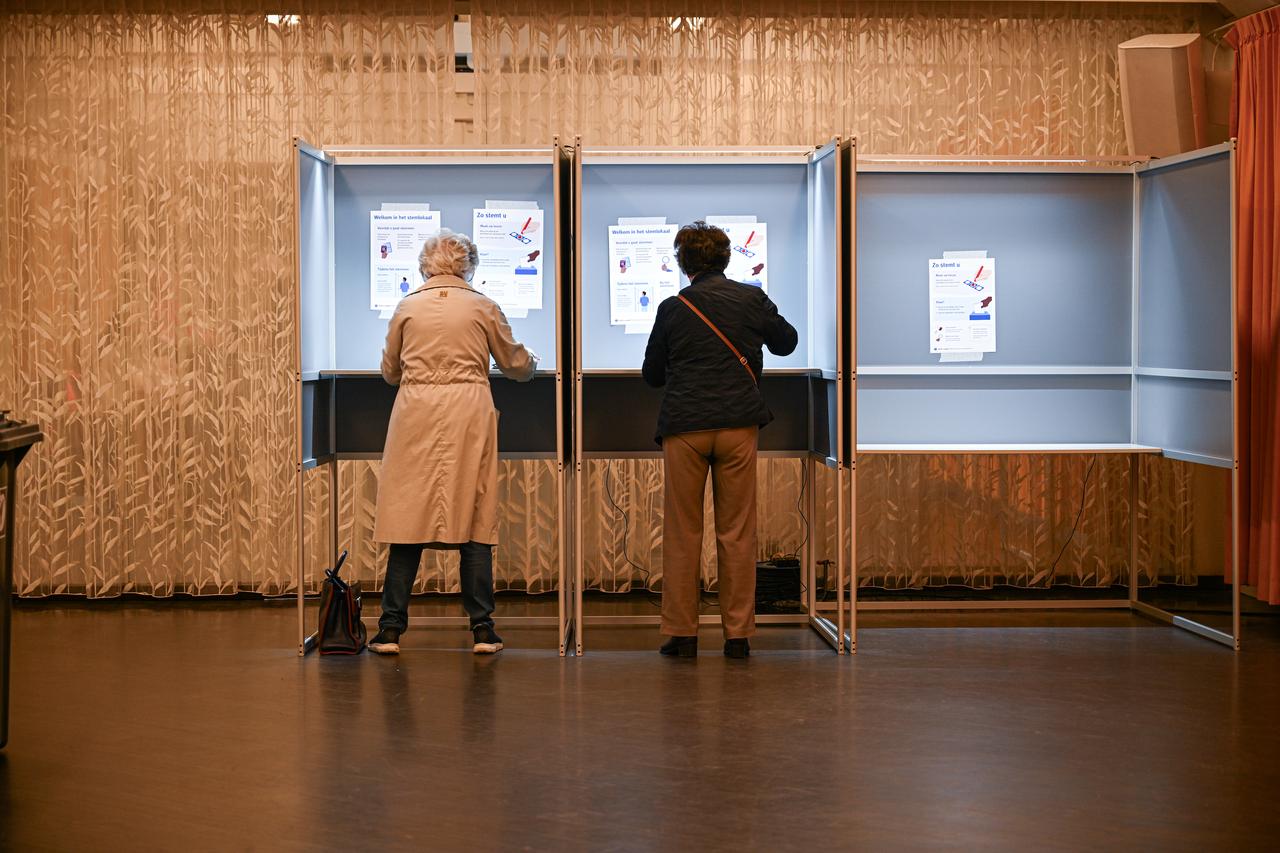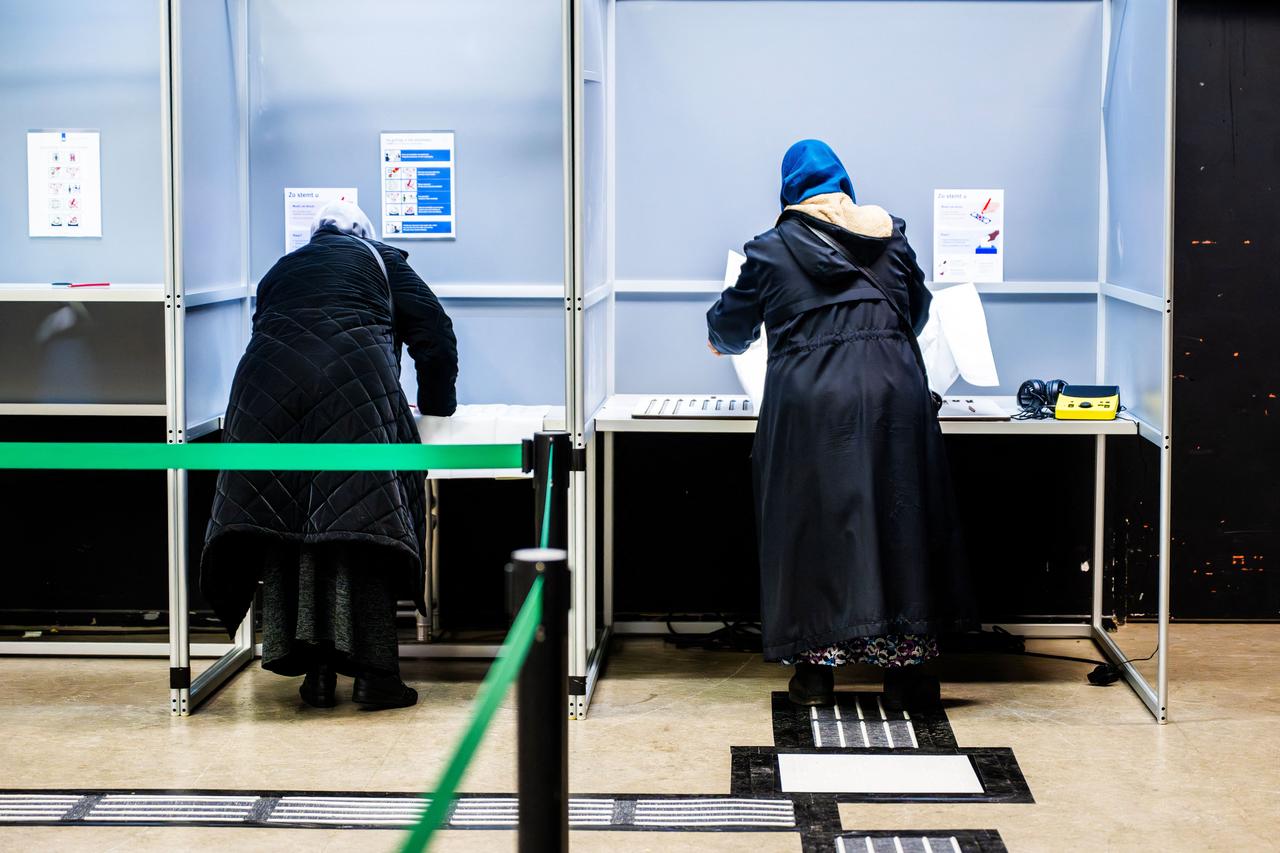
The Dutch headed to the polls Wednesday for a snap election viewed as a litmus test for the far-right’s growing influence across Europe.
Voters are electing 150 members to the House of Representatives after the collapse of Prime Minister Dick Schoof’s right-wing coalition in June, the Netherlands’ shortest-lived government in modern history.
The snap vote, contested by 27 parties and alliances, comes amid rising public concern over migration, housing shortages, and political instability.

Schoof’s coalition, an uneasy partnership between the far-right Party for Freedom (PVV) and centrist and liberal parties, collapsed after just 11 months due to internal divisions over asylum policy, underscoring how migration has become the dominant fault line in Dutch politics.
Polls suggest anti-immigration firebrand Geert Wilders could repeat his surprise success from two years ago, with his Freedom Party (PVV) running neck and neck with three other major blocs.
“It is impossible to tell right now who might win the elections because there are four parties tied for first place,” Sarah de Lange, professor of Dutch politics at Leiden University, told AFP. “And over 50% of Dutch voters are still undecided.”
Yet Wilders, often dubbed the “Dutch Trump,” is unlikely to become prime minister regardless of the outcome. All mainstream parties have ruled out forming a coalition with him, deeming his views too extreme.
The Dutch electoral system’s fragmentation means no party is expected to reach the 76 seats needed to govern alone. Coalition-building—a hallmark of Dutch politics—will again determine the next government, a process that could take months.

Wilders has made migration the centerpiece of his campaign, rallying against asylum centers and promising to withdraw the Netherlands from international refugee treaties. His rhetoric has drawn sharp criticism from municipalities, centrist parties, and Muslim organizations.
In one recent social media post, Wilders compared a smiling blonde woman labeled “PVV” to a scowling veiled woman labeled “PvdA,” the Labor Party—prompting a record number of discrimination complaints and formal charges by Muslim groups.
Major parties such as the GroenLinks–Labor alliance, the liberal Democrats 66 (D66), the center-right People’s Party for Freedom and Democracy (VVD), the conservative New Social Contract (NSC), and the populist Farmer–Citizen Movement (BBB) have all pledged tougher migration rules but reject Wilders’ most radical proposals.
According to the latest opinion polls, the PVV, GroenLinks–PvdA alliance, and D66 are locked in a tight race, with the Christian Democrats (CDA) and the VVD trailing close behind.
“The future of our nation is at stake,” Wilders told AFP in a campaign interview. “Like all over Europe, people are fed up with mass immigration and the change of culture.”
His performance will be closely watched across Europe as far-right parties surge in France, Germany, and Britain.
Frans Timmermans, leader of the left-wing GroenLinks–PvdA alliance and a former European Commission vice president, has positioned himself as a stabilizing alternative after months of chaos. “We need to bring back confidence because there’s no issue we can’t solve,” he said.
Rob Jetten of D66 has also gained momentum, pledging to “bring the Netherlands back to the heart of Europe.” Meanwhile, CDA leader Henri Bontenbal emphasized moderation, saying most Dutch voters “want policies from the political center.”
The campaign has been marred by violence and disinformation. Demonstrations against asylum centers have erupted in several cities, and an anti-immigration protest in The Hague last month turned violent.
Wilders was forced to apologize to Timmermans after party members circulated AI-generated images to discredit him.
He has warned that “democracy will be dead” if he wins but is again excluded from government. “You can’t ignore two and a half to three million votes,” one of his supporters, Piet Verhasselt, told AFP at a rally.
As a founding member of both the EU and NATO, the Netherlands’ political direction carries weight beyond its borders. Analysts say extended coalition talks could delay key decisions on energy transition, fiscal reform, and EU policy.
The election outcome could also shape Europe’s migration strategy, transatlantic relations, and the bloc’s stance on Ukraine. A stronger far-right showing would deepen concern over Europe’s political drift, with nationalist parties gaining ground from Italy to Germany.

The Denk Party, which campaigns against racism and discrimination and has defended Palestine’s rights since entering parliament in 2017, is also contesting the election.
Composed largely of Turkish and immigrant members, Denk currently holds three seats and is fielding 50 candidates this year, including 22 of Turkish origin. Polls predict it will retain its parliamentary presence.
The first exit polls are expected late Wednesday night. Once results are finalized, coalition negotiations will begin.
The party that wins the most seats will lead the talks to form a government, a process that, as past experience shows, could stretch for months. Until then, outgoing Prime Minister Schoof will continue to head the caretaker administration.